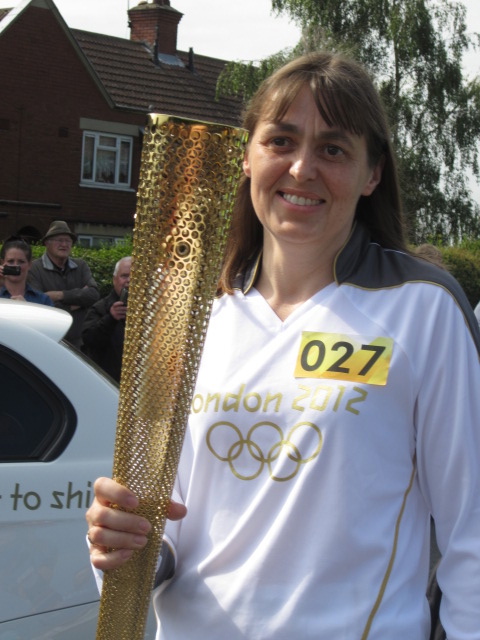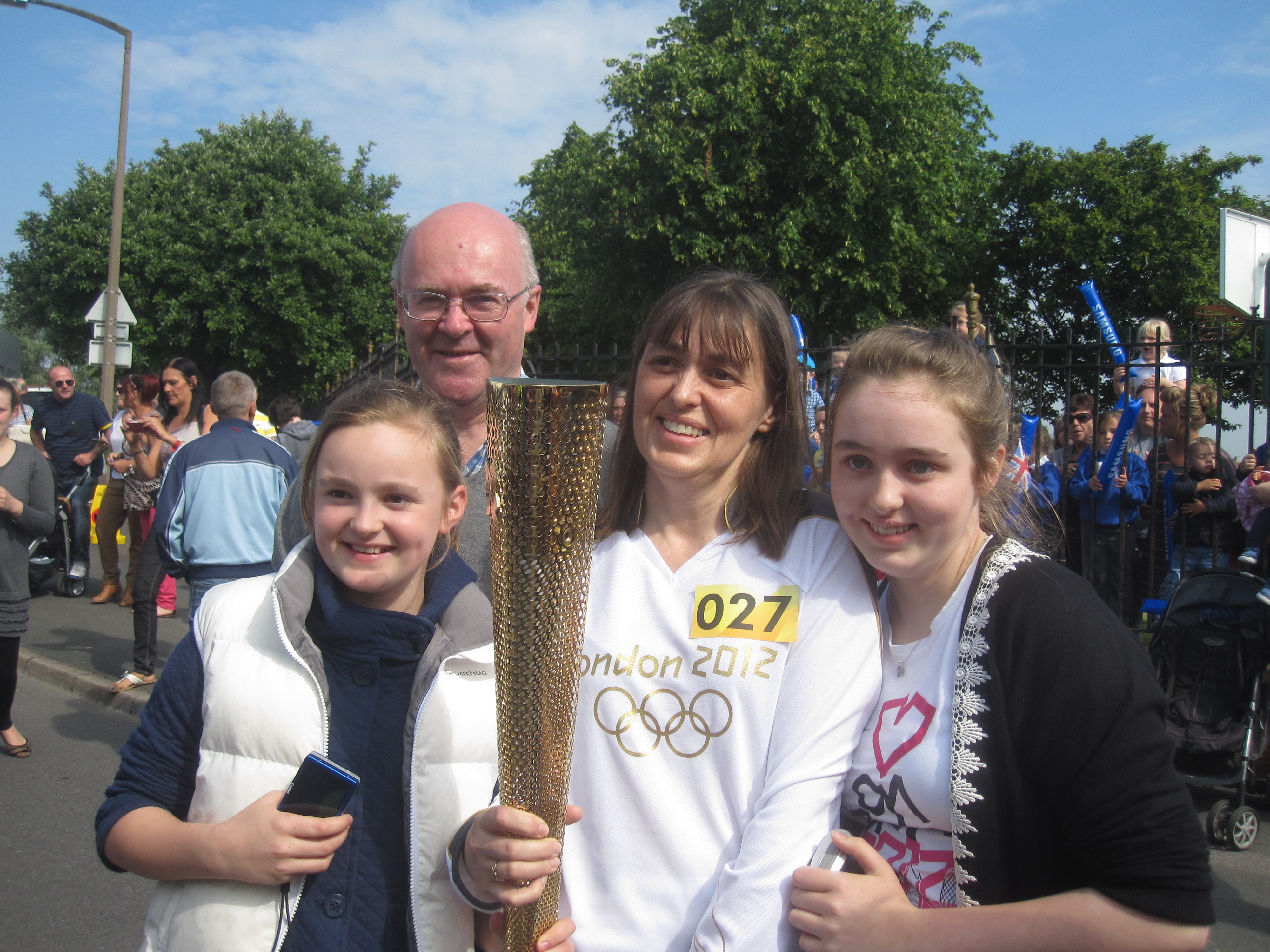BIR Member Elspeth Whitby has developed an MRI service for newborn babies and for women who have problems with their pregnancy. One of Elspeth’s colleagues put her forward to be an Olympic Torchbearer. This is her story:
 The day was an experience I will never forget. We met two hours before our run in a local school hall to be told the logistics of the session. 19 torchbearers were in our group, chosen for a vast range of different activities. This included a fourteen year old marshal arts expert, a Paralympian, ex-army personnel with horrific stories of trauma and survival andteachers in special schools.
The day was an experience I will never forget. We met two hours before our run in a local school hall to be told the logistics of the session. 19 torchbearers were in our group, chosen for a vast range of different activities. This included a fourteen year old marshal arts expert, a Paralympian, ex-army personnel with horrific stories of trauma and survival andteachers in special schools.
It was gloriously sunny – a relief as the uniforms were rather see-through when wet! The town had decorated its shops and streets for the occasion and I felt honoured to be representing my community. The crowds were fantastic and the support and encouragement for the run from the officials, including the Metropolitan Police was something I have never seen or felt before and will remain with me forever. The fourteen year old got back onto the support bus afterwards and said, ‘That was amazing. Why can’t everyone be like that all the time?’ I think that summed up what we all felt. The community was a unit of happy people enjoying a unique occasion, no disruption, no violence, no protest.
My two daughters and I were raising money for charity by completing a challenge to cover 2012km by Olympic sports between January 1st and July 26th. The torch run was the last 300m and a fabulous way to complete a challenge to help others less able.
Since then I have taken the torch out into the community as much as possible. It has gone into youth groups, schools including several special schools, been involved in a church service and much more. The joy it has brought to others is a pleasure to see and I feel honoured to be in a position to do that. I hope the torch will continue to bring joy to the community whilst I have what will be a family heirloom.
More about Elspeth and her work
Elspeth offers informal support to all her patients, providing a telephone number and email address.
She helps junior staff and medical students to further their careers, encouraging them to lecture and publish, and she teaches small groups to help them beyond university requirements.
As part of her work, she helped a student to complete her PhD whilst being treated for cancer, offering both moral and practical support, including putting her up in her own home when she was really ill and continued to ensure she was awarded the PhD posthumously.
She is an active part of Science Week, a governor of a school in a less affluent part of Sheffield, regularly reads with children, helps on school trips and ran the after-school club for five years.’